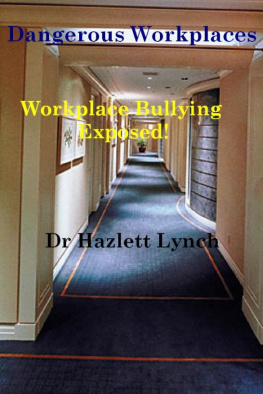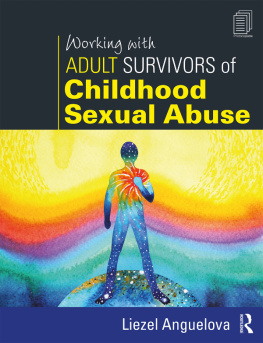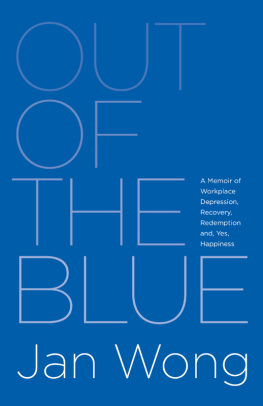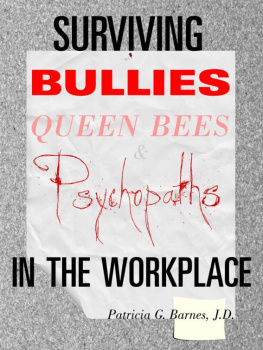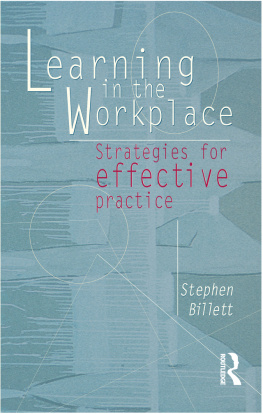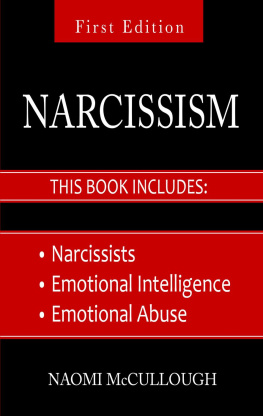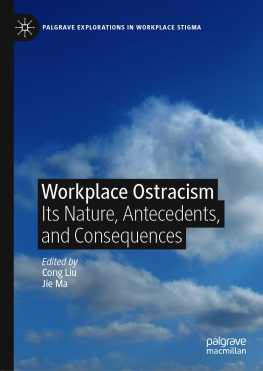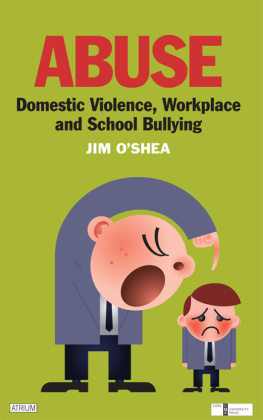Dedicated to my father,
Horace L. Morancie
June 27, 1929-February 4, 2015
In his very unique way, he taught me how to
stand up for myself and be strong in the face of adversity.
PART I
A Disturbing Encounter
I
The Beginning
Spring 2010
My stomach churned as the school secretary walked into my office. Again. With that now familiar half smile, her eyes never meeting mine, she handed me yet another envelope with my name scribbled across the front. What now? I asked myself. But I already knew the answer.
I was receiving another letter demanding my presence at a meeting to discuss whatever infraction of rules that the principal had decided I committed. Over the course of my twenty-year career, I had received accolades from every administrator and supervisor I had worked withuntil him. Yet, with this new principal, I was doing nothing that I hadnt been doing all along.
During the 2010-11 school year, after receiving the third letter requesting my presence at a disciplinary meeting in as many months, I started posting them on the blackboard behind my desk. Part of me was trying to make light of a bad situation. Another part of me hoped that the adults who came into my office would notice the letters and question what was going on. In my fantasy, they would demand that we join together and fight this atrocity. But there I sat, by myself, with yet another letter from my supervisor in my hand.
Considering the number of times that I had been disciplined since Mr. Johnsons arrival at the school three years earlier, one would think I had been disrespecting my colleagues and abusing superiors, or even abusing the children in my care!
I was the first African-American psychologist to work at this urban school. When I began working there twenty or so years earlier, that school district was the smallest in the city and known for being very exclusionary. In some ways, it was the holy grail of school districts because of its size and reputation for having some of the best schools in the city. When I was first granted my request for a transfer from an administrative assignment to working in a school, I was ecstatic because I would finally be able to work directly with children rather than pushing paper.
That transition was not an easy one. One of my future team members called when she heard that I was coming to the school. At the time, I was working as a psychologist with administrative duties. When she called she tried to sound friendly.
Hi, this is Barbara. Im going to be your new Educational Evaluator, she said. She spoke with a Brooklyn accent.
Oh, hi, Barbara. How are you? I immediately knew what that this was not just a friendly phone call to welcome me to the team.
I just wanted to welcome you to the team. How long have you been a psychologist? I havent seen you around that much. And I just want to make sure that you know that we have a very high population of physically disabled children so I hope youre comfortable working with them. Its really not a bad place, but the principal can be kind of tough. She was rambling. I wasnt sure whether or not she wanted me to respond because she wouldnt stop talking.
Barbara wanted to find out more about who I was and what my experience was. It felt like she wanted to know if I actually knew what I was doing. I went along with the interrogation and answered her questions with amusement. Later, when I finally went to the school, my other team member, the social worker, told me that my clinical supervisor, an older husky-voiced Jewish woman, had warned her that I had a black attitude. The social worker asked her what that meant but never got an answer.
One day when I was working in my small, stiflingly hot office that had previously been a book storage room, under the stairs at an annex of the school, one of the special education teachers knocked at the door. Cathy was a round-faced, stocky African-American woman who I had observed to be outspoken and very knowledgeable about her students.
Come on in, I said. It was important for me to enter a new school setting by being accessible to the staff.
I just have to ask, Ms. Morancie, are you the new psychologist? she said.
Yup, thats me.
No, really, youre the new psychologist? Her brows were furrowed and she looked perplexed.
Yes, I am. Whats the matter? I said.
She smiled and said, I didnt think this district hired black clinicians.
Really? Well, here I am.
She went on to say that she had assumed that I was a speech teacher or guidance counselor but certainly not a psychologist. She talked about the discrimination that she sometimes felt in her own position and warned me to watch my back.
Some minor issues related to my race and culture did come up, such as when the team member who had interrogated me before I got to the school insisted that the discrimination that she experienced as a Jewish woman was the same as the discrimination that I experienced as a black woman.
The difference is, I explained, when you walk into a room no one knows that youre Jewish. When I walk into a room everyone knows for sure that Im black.
I never felt like I experienced purposeful discrimination during the many years that I worked at the school. Rather, I thought that some of the comments made by colleagues were not only because of their lack of experience working with people of my race, but also due to the mystery of my profession. They had worked with teachers, but my position as a clinician was considered a higher professional rank.
Over the years, we had many discussions about race and culture. I learned a lot about Jewish culture (I know several Yiddish expressions, though I cant spell the words) and they learned that there was such a thing as a middle class black family of professionals. We didnt all live in the projects. It was those discussions that fostered several friendships that lasted for many years.
I also learned that most school employees dont really understand what a school psychologist does. I worked for many years with a social worker who often said that she believed that psychologists made most principals nervous because there was an assumption that we could read their minds. I guess the ability to analyze behaviors is often equated with mind reading. Teachers often thought that the social worker and I didnt do much because we were in our office doing paperwork and they were on the front lines teaching children. In my case, I think they didnt understand that once I finished testing a child it took some time for me to analyze the material, write a report and complete all of the other paperwork that went along with a referral for special education services. That was basically my job as a school psychologist in New York City public schools. I assessed children who were referred for special education services due to learning or behavior difficulties. I managed their cases from assessment through a recommendation for services and placement in a program that best suited their individual educational needs.
My job as a psychologist is quite different from other school staff. I am not, nor have I ever been, a classroom teacher. I dont write lesson plans. I dont stand in front of a group of thirty students and talk for six hours a day. Im not a disciplinarian. In fact, being a disciplinarian is frowned upon, because if a child sees me in a threatening or punitive light, it will be very difficult to form a relationship where I can get the best out of them during an evaluation or calm them down during an emotional crisis. Principals often didnt understand this. They sometimes saw us as babysitters or miracle workers for difficult children. A few years ago I made a magic wand out of a yardstick, cardboard, and aluminum foil. Whenever someone asked me to make a child stop behaving that way, I would wave my wand over the child and then shrug my shoulders when the child did not immediately become the perfect student. Then we would both laugh.
Next page

